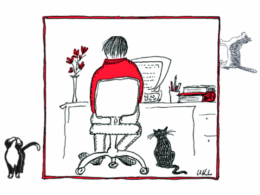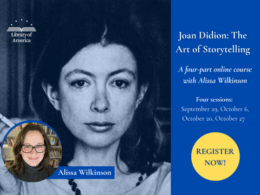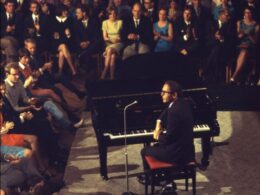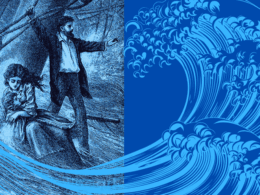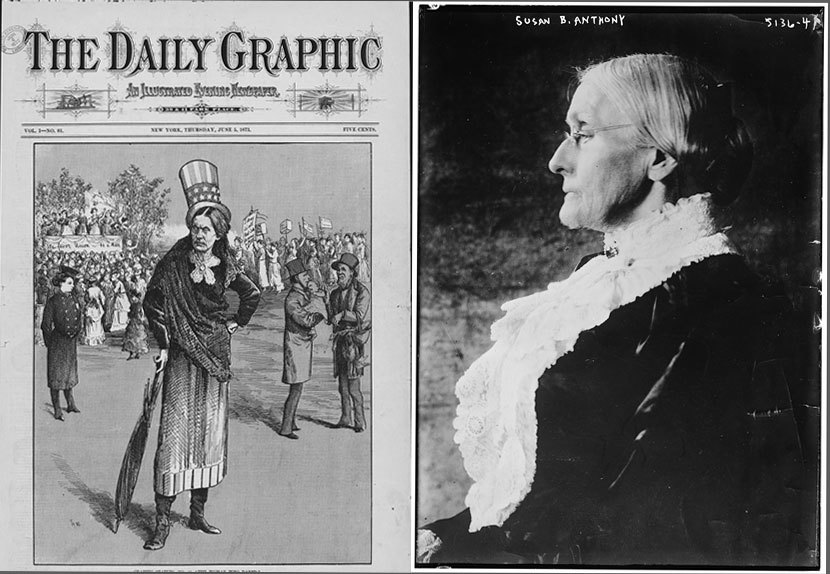
Susan B. Anthony’s 200th birthday is tomorrow, February 15, and what makes the milestone even more special is that 2020 also marks the 100th anniversary of the Nineteenth Amendment (nicknamed the “Susan B. Anthony Amendment”), which gave American women the right to vote.
Over the course of her extraordinary career, Anthony forged an enduring legacy as a national advocate for abolition, temperance, and, most notably, women’s rights. On this occasion we remember one example of her dedication to justice and equality in America.
As an activist, Anthony’s tactics for social change varied. She wrote pamphlets, printed newspapers, lectured extensively on a national circuit, led numerous reform organizations, and penned and circulated petitions to Congress. In 1872, however, she gained national attention for a more radical method of political disruption. She and fourteen other women were arrested for voting in the presidential election and were subsequently found guilty.
In response, Anthony delivered “Is It a Crime for a Citizen of the United States to Vote?,” a now-famous 1873 speech* in which she declared that, without female suffrage, America could not be called a democracy based on the consent of the governed. “Women,” she argued,
dissatisfied as they are with this form of government, that enforces taxation without representation, that compels them to obey laws to which they have never given their consent,—that imprisons and hangs them without a trial by a jury of their peers, that robs them, in marriage, of the custody of their own persons, wages and children,—are this half of the people left wholly at the mercy of the other half, in direct violation of the spirit and letter of the declarations of the framers of this government, every one of which was based on the immutable principle of equal rights to all.
Celebrations of Susan B. Anthony’s life and achievements are taking place all across the country in 2020. The Library of Congress is hosting an exhibition that highlights its Susan B. Anthony Collection; the Metropolitan Museum of Art is showcasing The Mother of Us All, Gertrude Stein and Virgil Thomson’s opera about Anthony, this very week; and the Susan B. Anthony Museum & House in Rochester, New York, is hosting a number of events to commemorate Anthony’s birth and her contribution to women’s suffrage.
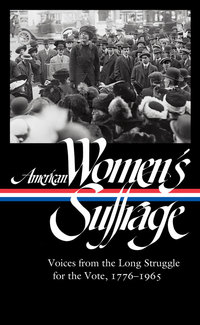
Library of America offers a potent contribution to this anniversary year in July, with the release of American Women’s Suffrage: Voices from the Long Struggle for the Vote 1776-1965. Edited by historian and biographer Susan Ware, this anthology of firsthand writings will include not only the most recognizable figures in the campaign for women’s suffrage, like Anthony and Elizabeth Cady Stanton, but also the anti-suffragists who worried about where the country would head if suffrage became universal, as well as the black, Chinese, and American Indian women and men who were essential to the movement. With women’s rights an increasingly urgent topic in the news, these ninety pieces by over seventy writers tell the full history of a movement whose consequences are still playing out in the early twenty-first century.
*The speech is included in full in the Library of America volume American Speeches: Political Oratory from Abraham Lincoln to Bill Clinton.
